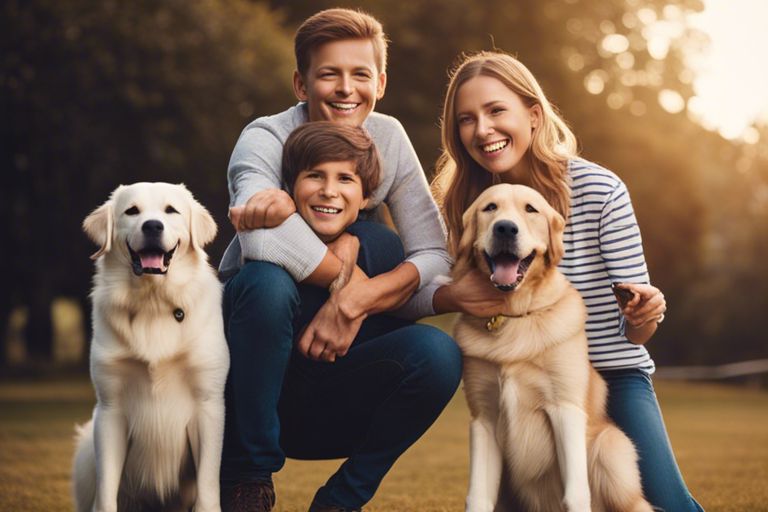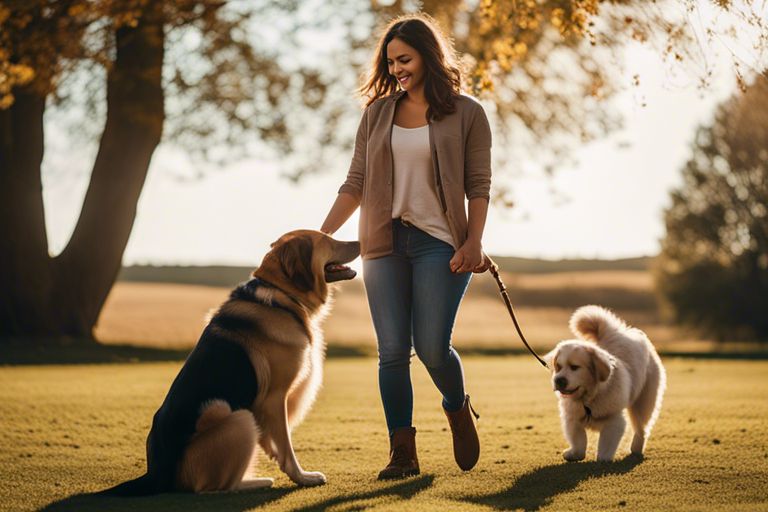There’s a special kind of charm that large dog breeds bring to a family, but it’s vital to consider if these majestic canines are the right fit for your household. In this blog post, we will provide expert insights on the unique considerations and responsibilities that come with owning big dogs. From space requirements to exercise needs and temperament traits, we will explore into the key aspects to help you determine if a large dog breed is the perfect addition to your family.
Key Takeaways:
- Space Requirements: Large dog breeds need ample space to move around comfortably. Make sure you have a spacious living environment before considering getting a big dog.
- Exercise Needs: Big dogs require regular exercise to stay healthy and happy. Be prepared for long walks, hikes, and playtime to keep your large breed dog physically and mentally stimulated.
- Training and Socialization: Training and socialization are crucial for large dog breeds to ensure they are well-behaved and get along with other animals and people. Consistent training from a young age is necessary for managing the size and strength of big dogs.
Assessing Your Lifestyle Compatibility
Space Requirements for Large Breeds
Compatibility with large dog breeds starts with assessing your living space. Big dogs need ample room to roam and stretch their legs. If you live in a small apartment or a house with a tiny yard, a large dog breed may not be the most suitable choice for you. Consider whether you have enough space indoors and outdoors to accommodate a big dog comfortably.
Activity Levels and Exercise Needs
An important factor to consider when assessing your compatibility with large dog breeds is your activity level and dedication to exercise. Large breeds, such as the Great Dane or the German Shepherd, require regular exercise to stay healthy and happy. Daily walks, playtime, and mental stimulation are crucial for preventing boredom and behavior issues in big dogs.
Another aspect to keep in mind is that large dog breeds often have high energy levels and need plenty of physical activity to prevent obesity and promote overall well-being. If you lead a sedentary lifestyle or cannot commit to providing adequate exercise for a large dog, it may be best to consider a smaller breed that requires less physical exertion.
The Financial Commitment of Owning a Large Dog
Food and Nutrition Expenses
If you’re considering bringing a large dog breed into your family, it’s vital to factor in the cost of food and nutrition. Large breeds consume significantly more food than their smaller counterparts, which means a higher monthly expense for their meals. Quality nutrition is key to keeping these sizable dogs healthy and active, so investing in premium dog food is a must to meet their dietary needs.
Health Care and Potential Medical Issues
With large dog breeds, it’s crucial to be prepared for potential health care costs and medical issues that may arise. These breeds are prone to specific conditions such as hip dysplasia, bloat, and arthritis, which can require expensive treatments and surgeries. Regular visits to the veterinarian for check-ups and vaccinations are also necessary to maintain your dog’s health and well-being.
The financial commitment of owning a large dog goes beyond the initial purchase or adoption fee. It includes ongoing expenses like food, grooming, training, and healthcare. Considering these costs before bringing a big dog into your family will help you plan and budget effectively for their care.
Training and Socialization
Importance of Early Training
Now, one of the most crucial aspects of owning a large dog breed is early training. This is the foundation for a well-behaved and obedient canine companion. Starting training from a young age helps establish expectations and behaviors that will make your dog a joy to be around.
Managing Behavior and Socialization Challenges
With large dog breeds, managing behavior and socialization challenges can be more demanding due to their size and strength. It is necessary to establish clear boundaries and consistent rules to prevent any unwanted behaviors from developing. Socialization with other dogs and people is also crucial to ensure your large dog is well-adjusted and friendly in various situations.
Early socialization and exposure to different environments and stimuli are key for large dog breeds to prevent fearfulness or aggression towards unfamiliar things. Consistent training and positive reinforcement play a vital role in shaping their behavior and fostering a strong bond with their owners.

Long-Term Considerations
Lifespan and Aging Issues
One of the most important factors to consider when owning a large dog breed is their lifespan and potential aging issues. Large breeds typically have shorter lifespans compared to smaller breeds, with some only living 6-10 years. As they age, large dogs are prone to certain health conditions such as joint problems, arthritis, and obesity. It’s crucial to be prepared for the responsibilities that come with caring for an aging dog, including regular vet check-ups and possible changes in diet and exercise routines.
Planning for the Unforeseen
Long-term planning for the unforeseen is important when owning a large dog breed. It’s important to consider potential emergencies or unexpected events that may arise, such as sudden illness or injury. It’s recommended to have a financial plan in place to cover unexpected veterinary costs or emergencies. Additionally, having a reliable pet sitter or boarding facility lined up for vacations or emergencies can provide peace of mind for both you and your furry family member.
Expert Insights and Experiences
Veterinarian Recommendations
On the matter of owning large dog breeds, veterinarians recommend extra attention to the health and well-being of these pets. Regular exercise is crucial to prevent obesity and joint issues in larger breeds. Additionally, a balanced diet tailored to their size and breed can help prevent common health problems.
Insight from Experienced Large Breed Owners
Recommendations from experienced large breed owners emphasize the importance of early socialization and training. Big dogs require consistent training and socialization to ensure they are well-behaved and mannered when interacting with family members, visitors, and other animals. Their size and strength can pose challenges if not properly managed from an early age.
With the right care, attention, and training, large dog breeds can make loyal and loving family pets. It’s important to be prepared for the commitment and responsibility that comes with owning a big dog, but the rewards of their companionship are immeasurable.
Final Words
Following this expert insights on owning big dogs, it is important to carefully consider whether large dog breeds are the right fit for your family. While big dogs can make great companions, their size, energy level, and care requirements can be challenging for some households. By understanding the characteristics and needs of large breeds, you can make an informed decision that meets both your family’s lifestyle and the dog’s well-being. Be mindful of, owning a big dog comes with responsibilities that require commitment, resources, and consistent training. With proper care and attention, large dog breeds can bring immense joy and love to your family for years to come.
FAQ
Q: What are some considerations to keep in mind when deciding if a large dog breed is right for my family?
A: When considering whether a large dog breed is right for your family, it’s important to think about the size of your living space, your family members’ activity levels, and the amount of time you can dedicate to exercising and training the dog. Large breeds require more space to move around and regular exercise to stay healthy and happy.
Q: What are some common characteristics of large dog breeds that potential owners should be aware of?
A: Large dog breeds often have a gentle and protective nature, making them great companions for families. However, they can also be strong-willed and independent, requiring consistent training and socialization from an early age. Additionally, large breeds may have specific health concerns related to their size, such as hip dysplasia or joint issues.
Q: How can I ensure a positive experience when owning a large dog breed?
A: To ensure a positive experience when owning a large dog breed, it’s important to research the specific breed’s characteristics and needs before bringing them into your home. Provide ample exercise, training, and socialization opportunities to keep your large dog happy and well-adjusted. Regular veterinary check-ups and a balanced diet are also crucial for their overall health and well-being.

